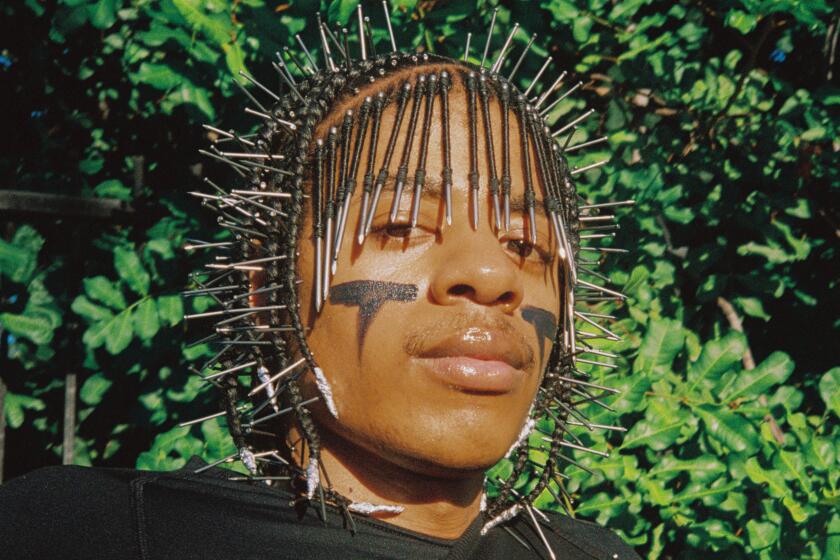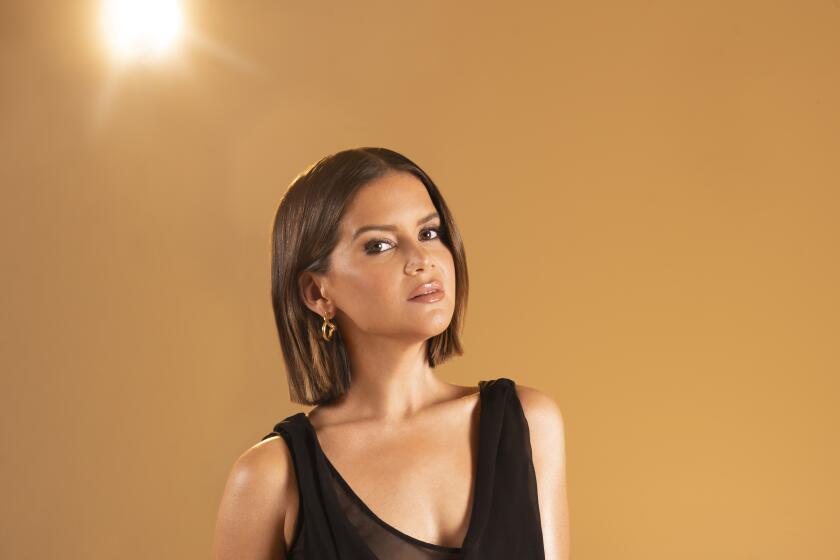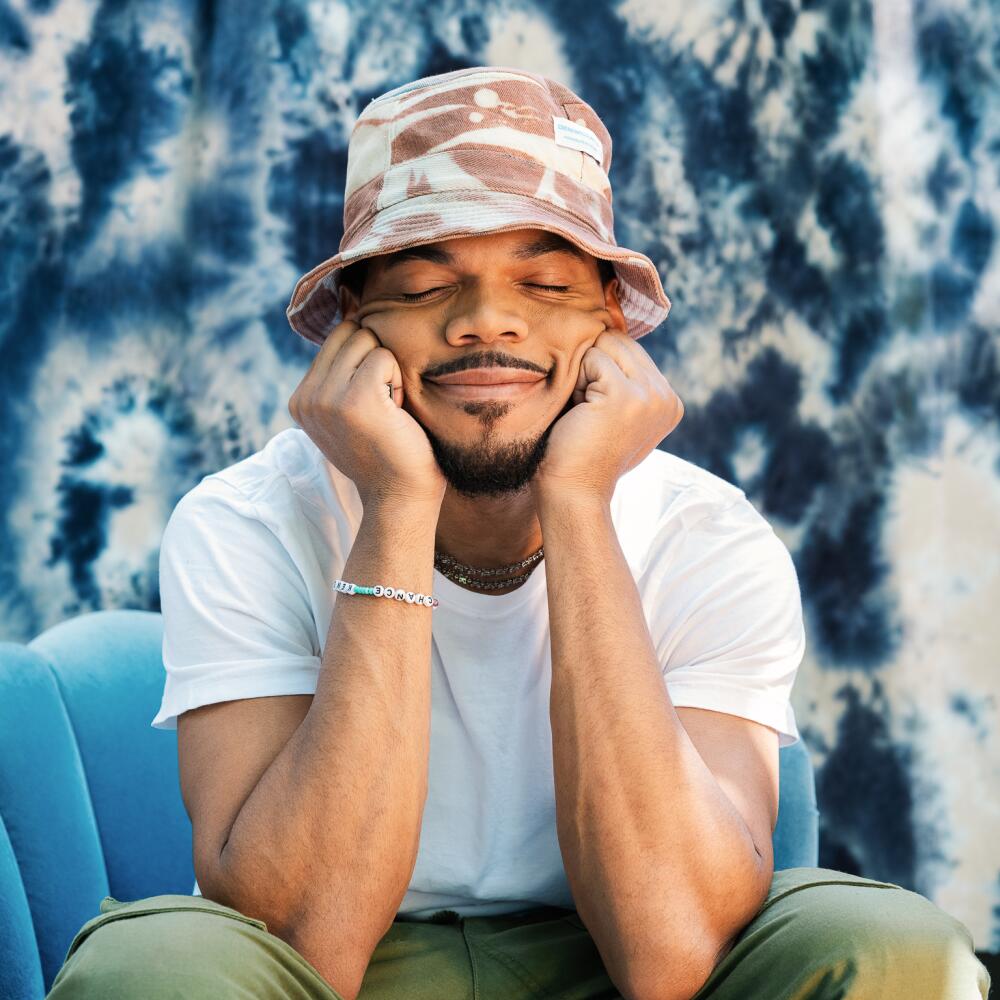
- Share via
There was hardly a better time to be an aspiring rapper coming out of Chicago than 2012.
That year, label scouts began flocking to the city like never before, allured by Chief Keef’s thunderous “Finally Rich” mixtape, along with buzzing music by King Louie and Sasha Go Hard. While drill music ran the city, heading the left-of-center-scene was a squeaky-voiced talent named Chance the Rapper, who’d just turned a suspension from high school into a breakout mixtape, “10 Day.”
“[MTV2’s ‘Sucker Free’] did an episode in Chicago,” Chance recalled, speaking between hits of a vape pen at the Pendry West Hollywood. “Within a week, every label flying their reps to Chicago, trying to find the best drill artist and the best ‘alt’ artist. I, my friends, people I grew up with, anyone who’d started rapping in 2011 or 2012 were taking label meetings. A lot got signed.”
Famously, the man born Chancelor Bennett, now 30, would spurn the labels and go at it as an independent artist. In 2013, he released “Acid Rap,” a mixtape so potent that he proclaimed it would be your “favorite f— album” before the intro track had even finished. Over the ensuing 50 minutes of music, he backed up his claim, delivering soul-piercing wordplay centered on love, death and drugs over gospel-tinged production. The album was met with immediate critical acclaim, appearing on numerous year-end best-of lists; Pitchfork would rank it at No. 84 in its top 200 albums of the 2010s.
Teezo Touchdown is already a favorite of Drake, Tyler, the Creator and Travis Scott. Now, with his striking look and a debut LP, he’s ready to seize the spotlight.
Ten years after its release, Chance will bring the mixtape to the Kia Forum for an arena-size celebration, playing songs from “Acid Rap” along with some recent hits. The show, set for Thursday, will be a wholly Chicago affair — longtime collaborator Vic Mensa will open the night with a throwback performance of his own cult classic “Innanetape,” which turns 10 this month.
“We made ‘Innanetape’ and ‘Acid Rap’ to inspire ourselves first, and the people after,” Mensa said. “I think Chance and I have grown a lot since then.”

Since “Acid Rap,” Chance has achieved the highest heights and endured some surprising lows. His 2016 mixtape, “Coloring Book,” became the first digital-only project to win a Grammy, for rap album. But in 2019, his wedding-themed album “The Big Day” was largely panned by critics and listeners, and a subsequent tour was first postponed and eventually canceled.
In response, Chance broadened his artistic horizons. Last year, he collaborated with visual artist Mia Lee for an installation at L.A.’s Museum of Contemporary Art, featuring an emotive painting by Lee themed to his song “Yah Know.” Months later, he helped organize the Black Star Line Festival in Ghana, which drew 50,000 people and featured performances from Chance and Mensa along with Erykah Badu, T-Pain, Sarkodie and more. (A second edition of the festival is set for Jamaica in January.)
“I’ve been saying for a year and a half that we’re in a renaissance, and this will be a time period that people look back on — especially Black folks — that exceeds all our past understandings of community, wealth, education or art,” Chance said. “All of those things are being revolutionized, with a larger goal of reconnection.”
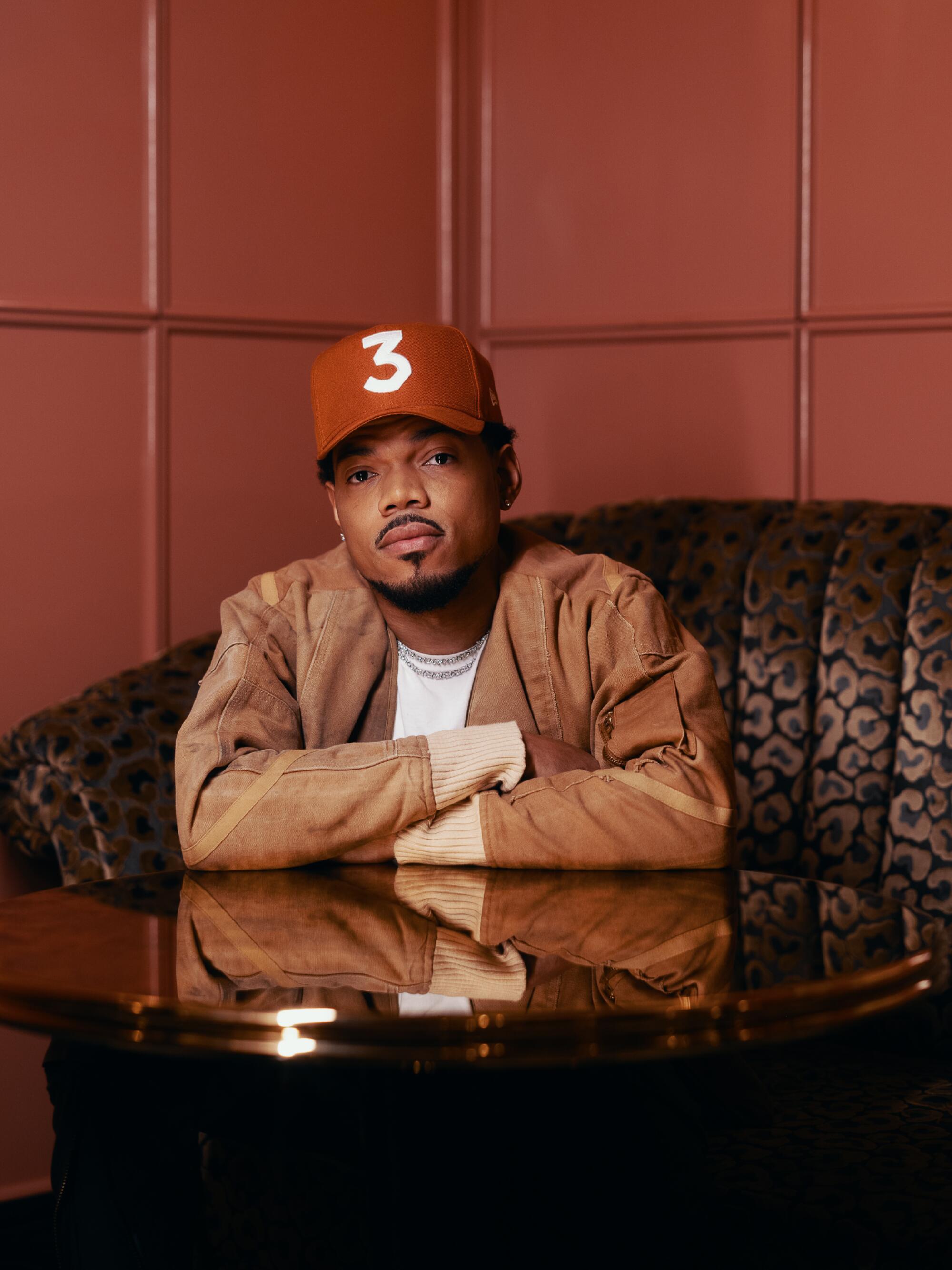
Your music has shifted pretty far from what you were doing on “Acid Rap.” Is it a strange feeling, re-immersing yourself in 2013?
It really was when I did the first show in Chicago. That was a deep thing to me, because I don’t really play much “Acid Rap” at my shows now — I’ll play “Cocoa Butter Kisses” or maybe “Everybody’s Something.” So to dig through old footage to create the content for the screens at the shows, and reconnect with all the people from Chicago, it just takes you back.
Each bar reminds me of people I need to hit up; every place that gets mentioned reminds me where I need to get some food. It’s a very aesthetic album. Some people get the acid vibe from it or the juke-gospel-hip-hop vibe, but I think it’s really just about me living in Chicago, putting pressure on myself to make a breakout project.
What song connects with you the most today?
“Acid Rain.” I wrote that when I was opening up for artists playing 300-cap rooms. I’m rapping about doing open mics but closing my eyes and seeing arenas. Going back and playing arenas for that project just makes me proud.
Remaining independent throughout your career has been a big part of your image. How strong was the urge to sign in the early days?
[Signing] was the main thing on my mind, all the way until late 2012. I thought, “This is the way. I gotta get a deal.”
I was in a label meeting, and they were giving me a weak-ass deal, but I was still down to do it. But instead of having a budget for physical albums, I wanted to do no physical copiesand only put it on iTunes and pocket that money instead. They told me there was no world where people would ever buy music without having it physically.
So if they’d foreseen our digital future, you would have signed?
Hell, yeah. I needed the money. But I think I was lucky to be scared and wary enough to not sign.
Morris’ feud with Jason Aldean and his wife over trans rights helped ignite Nashville’s current culture wars. Now, she’s kicking off a new chapter in her career.
A lot of “Acid Rap” touches on addiction and the darker side of drug usage, yet you’ve talked about people bringing you vials of acid at the early shows. Did it ever feel like some people missed the message?
I don’t think I was trying to get a specific message across. I feel like the coolest part about “Acid Rap” is it was so inquisitive and questioning things I thought I knew to be true.
I remember, two or three months after it dropped, I got tired of n— offering me acid and telling me about their trips every time I met them. But I couldn’t control it, because the project was out. It taught me that these projects are photographs of who we are in a moment but they last forever, and they shape a lot of people.
Did that lesson change how you made music?
I really learned that lesson around the time I had my first child in 2015. I had moved out to L.A. and had a great time, but I wasn’t very productive. But when I had a kid and needed money, I went into a different mode. So during the creation of “Coloring Book,” I went through the process of “this baby’s really finna come and I need to tour and sing these songs proudly.” My kid’s going to grow up, and this is going to be a picture of my youth, of who I was before I was super-grown dad.
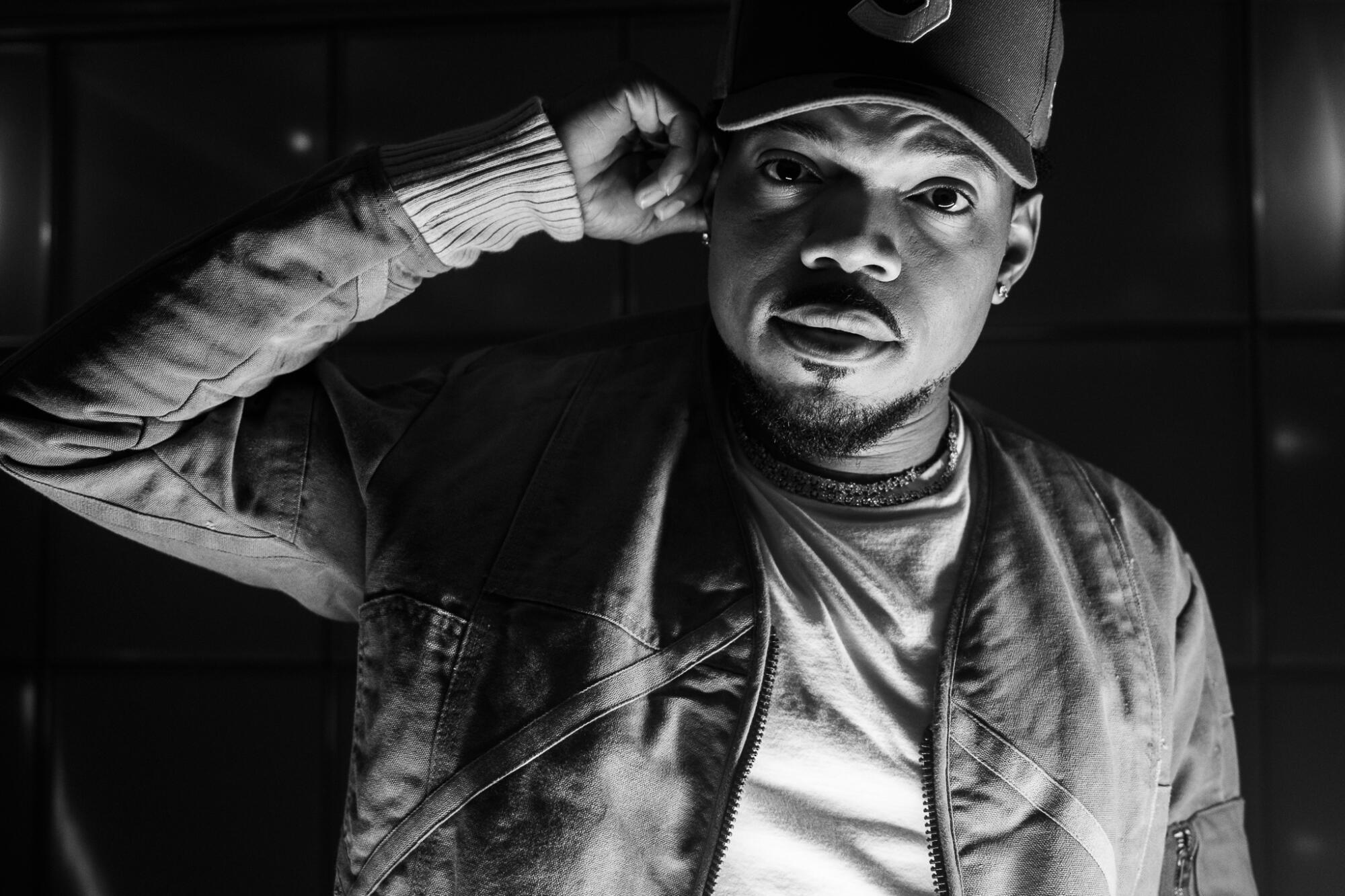
What was life like for you when you made “The Big Day?”
It was hectic. I got married during that time, I had my second kid during that time. There was a whole bunch of s— going on in Chicago, between the mayoral campaign and Kanye coming back, everything. I remember crossing new thresholds in my life that were coming to me as an adult but still being in my youth at 26.
That album got some pretty harsh reviews, especially compared to your previous projects. How did that affect you?
When I dropped “Acid Rap,” I got a lot of negative mentions at first, because [“10 Day”] was all about school. And then with “Coloring Book,” it was people mad that I was on some churchy s—. A new record is always a little bit jarring.
But when “The Big Day” dropped, [the reaction] definitely affected me. Like, “damn, this many people are talking about me, and it’s negative, all over the internet?”
I remember there was an initial reaction outside of my core fan base that I was noticing. It was way more of a Twitter conversation than I was used to. But it helped me understand, after the first week or two, that I had to stay outside. Views, mentions, comments all are important, but if you sit and read all of those and make them the measurement of the love versus hate that you had for something, you end up forgetting why you made it in the first place.
Looking back, would you have done anything differently?
I think I’d do everything the same. My life isn’t easy at all, but it’s very eventful, and when things happen, they tend to work out in the best way for me.
Last year, you threw the Black Star Line Festival. What inspired that move?
[In January 2022], I went to Ghana for the first time to visit Vic; he’d been staying out there. He had to make a bunch of moves around the continent, so he left me in the care of these amazing artists. I got shown the city of Accra by some of the renaissance artists of the 2020s. We really created community, and by the end of the trip, me and Vic were talking about doing a large initiative to reconnect Black folks in all the different Black countries. And we put together not just this concert, for 50,000 Black folks from around the world with top-tier artists from around the world, but did a whole week of events, with panels, Dave Chappelle speaking at the university, and all these different spaces for us to have intelligent discourse about what we want, what we need and what we can give each other. It reminded me of the Pan-African Festival of Algiers from the ’60s.
There’s been a lot of hand-wringing over hip-hop not having a No. 1 song or album for the majority of the year. What do you say to people who claim that hip-hop has peaked, that it’s falling off?
I don’t believe that. Hip-hop isn’t dying when you have every single legend being platformed this year. You’ve got Chance the Rapper doing arenas for a 10-year-old mixtape, you got 50 Cent doing arena tours for a 20-year-old album. I think hip-hop is not only here to stay but it’s here to change things.
Are rap’s leaders doing enough to make that happen?
I’ve been seeing a lot of hip-hop legends doing a lot of work. A lot of investing, supporting other artists, so that they don’t have to grow old and die in obscurity or without the honors they deserve. I think all we need is time and to re-emphasize the collective. And I think we’re getting closer to that.
More to Read
The biggest entertainment stories
Get our big stories about Hollywood, film, television, music, arts, culture and more right in your inbox as soon as they publish.
You may occasionally receive promotional content from the Los Angeles Times.
